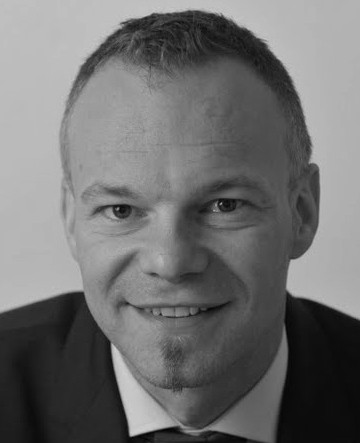Investing in Brazil Rob Cheng s Blog
Post on: 4 Июнь, 2015 No Comment

The Fed announced two months ago that they would drop Americas key interest rate to .25% giving America the unique distinction of having the lowest interest rates in the world. In addition, although Congress is still wrangling, they will soon pass one of the largest spending bills in the history of the nation, wrapped up in a bow and called economic stimulus. Although, it sure smells like pork. These two events have one key thing in common printing more money. In fact, the United States will begin printing money at an unprecedented rate, not just in the history of our nation, in the history of the world.
Ultimately, I believe these policies will fail. Furthermore, their policies are designed to promote consumption and penalize savings. I refuse to fall into this trap. I believe that saving money is always prudent, and in these economic times, even more so. There in lies the dilemma. If I want to save money, where should I do that?
Why Brazil?
In the United States, it is a non starter. Option 1 is to leave my cash in the bank. The good news is that theoretically, one should never lose the principle. The only exception is if the bank goes bankrupt and one has more than $100,000 in the account. But on the other hand, the interest is very close to zero. Option 2 is to place the money in the stock market. I have now figured out that the stock market is NOT for financial security. It is a high risk place where lots of money can be made and also lost. The stock market is for high net worth individuals and not average investors saving towards retirement.
There has to be a better place to invest ones money. Which leads me to Brazil. Brazil has the highest interest rates in the world. Right now, Brazil is paying a little over 1% per month or slightly over 13% per year in interest. Just like the United States, the interest is paid monthly. I sold all of my stocks in May 2008, and now I have moved a good portion of those proceeds to Brazil. Here is the amazing thing. At 1%/month, the interest on my savings far exceeds my living expenses. In fact, even when my two children are in college, the interest will exceed our expenses.
This is fantastic, but it is also ironic. When I left Gateway, I also had a pile of cash, but there was no true risk free way of gaining interest that would bear any meaningful fruit. The rest of this blog will focus on all the things that I have learned about investing in Brazil.
I have two banks in Brazil, HSBC and Banco do Brasil. At this point, the primary bank is HSBC. My account is broken into three distinct pieces, checking, certificate of desposit, and investment funds. The investment funds are essentially a composite of the American definitions of money market funds and mutual funds. Note: to my knowledge, there are not a lot of brokerage firms such as Charles Schwabb and Lehman Brothers. Most of these type of transactions are handled through the banks.
I set up two separate investment funds in HSBC. My instructions were that the funds be extremely conservative and at no time did I want to risk losing any principle. They identified two funds, but there was one big stipulation. The funds had a minimum investment of R$300,000 and R$500,000. In my case, this was not an issue, but I can see that these minimums might be an issue for others that want low risk investments.
The fund operates just like a money market fund in the United States. I can get on line and immediately move money from the fund into my checking account. Unlike the United States, taxes are deducted immediately when the money moves from the fund to the checking account. Secondly, taxes are automatically deducted twice a year from the fund if no money is withdrawn.
Taxes
The tax rates in Brazil are substantially less than income taxes in the United States. Much closer to American capital gains taxes. The maximum tax rate for interest is 22.5%, and the minimum is 15%. The rates slides the longer the money is left in the fund. The first six months are taxed at 22.5% and after two years, the rates falls to 15%. This is amazing! The Brazilian tax code encourages people to save money, which is 180 degrees from the United States, where the goal is to spend it as fast as you make it. I also confirmed that the Brazilian income tax rate is roughly half American taxes, but that is for another day.
My second account is the certificate of deposit. The CDB (the Brazil acronym for CD) is different than the American version. The American version is a promise to keep the money in the bank for a fixed period of time. The CDB can be withdrawn at any point and any time. In this way, it behaves almost identically to the fund. The only caveat is that it is a little more difficult. I have to call the bank to transfer the funds to my checking account, rather than doing an online transfer.
CDB has a huge tax benefit. Unlike funds where taxes are deducted twice a year, with CDB, taxes are only deducted when the money is moved to the checking account. This allows one to make compound interest over a space of years rather than a short 6 months. The interest rate on funds is slightly higher than the CDB, however, if you plan to keep the money in the account for years, the tax benefit could well outweigh the interest difference.
So after a lot of work and worrying, I believe I have achieved one of my lifes goals. My interest income here in Brazil is such that I have an oustanding income without having to work ever again. It is hard to describe the feeling, but there is a certain tranquility. When I describe my experience to my many American friends, almost all of them still feel a hesitancy to invest in Brazil.
To be honest, I felt the same way! If I had not slowly over the course over the last 5 years transferred safely so much money, I would never have felt comfortable making this happen. But there is a lot more than just experience driving my comfort level for investing in Brazil. Here are some of the many reasons why I think Brazil is a smart place to invest.
High interest rates
The Brazilian high interest rates is actually a reflection of an economic policy that is vastly different than the rest of the world. Back in the 1980s, Brazil went through a period of hyper inflation which ultimately led to the collapse of their banking system and their currency. When talking to anyone in Brazil, everyone in the nation remembers this gloomy period in their history. Therefore, the Brazilian central bank is very cautious about inflation. The best way to keep inflation in check is to keep interest rates high.
But more importantly, Brazils measure for inflation is as accurate as possible. It includes the costs of all goods and services in the economy. The American inflation number excludes the cost of energy and the cost of food!
There is also a qualitative point. When I talk to my banker in Brazil, she is extremely knowledgeable about macroeconomics. In general, Brazilians are much more sensitive to macro economics perhaps due to the collapse in the 80s.
Currency Risk

I personally have less currency risk than an American since I live in Brazil and have legitimate expenses in the local currency. But even throwing that out, I still think Brazil is a smart place to invest money.
The first reason is the most overpowering. The US strategy to fight this economic crisis is to print money. Print money to lower interest rates. Print money to bail out distressed companies and banks. Print money to build bridges and new schools. And on and on. This strategy reeks of panic, and is very risky. Ultimately, this strategy is inflationary, and more over puts significant downward pressure on the dollar. To get an idea on the magnitude of the American printing press, check out this video of none other than Fox News .
The next argument is the high interest rates offset currency losses. If you believe that the dollar will rise, then if that rise is not too significant, the interest rates will offset any losses. Heres an example. With Brazilian interest rates where they are, your money will double in a little less than 5 years. The dollar is currently at R$2.30. The dollar would have to rise to R$4.6 to stay out of the black.
How did I do it?
I have investigated a lot of things, and it was not easy. It is not easy to move money from the United States to Brazil. For example, if an American wanted to own Euros, they could setup a foreign exchange account and buy and sell to their hearts content. Not on the Brazilian real.
The only way to do this is to setup a Brazilian bank account. The key is to have a visa that is anything other than a tourist visa. Right now, I have permanent residence since I am married to a Brazilian woman. Other options are to get an investment visa, student visa, or work visa.
It is unclear to me why Brazil makes it so difficult for foreigners to invest in their nation. I believe that if they open up these regulations that the economy would boom. A friend of mine was saying that the key success is to catch a trend on the way up before too many people know. Thats where I believe we are on the curve right now.
I have been talking to various people in the financial industry. I believe there is a way for a mutual fund or perhaps a hedge fund to create a low risk way for Americans to participate in the high Brazilian interest rates. Ill keep everyone posted as those discussions progress.
If you have any comments or questions, leave them below.














